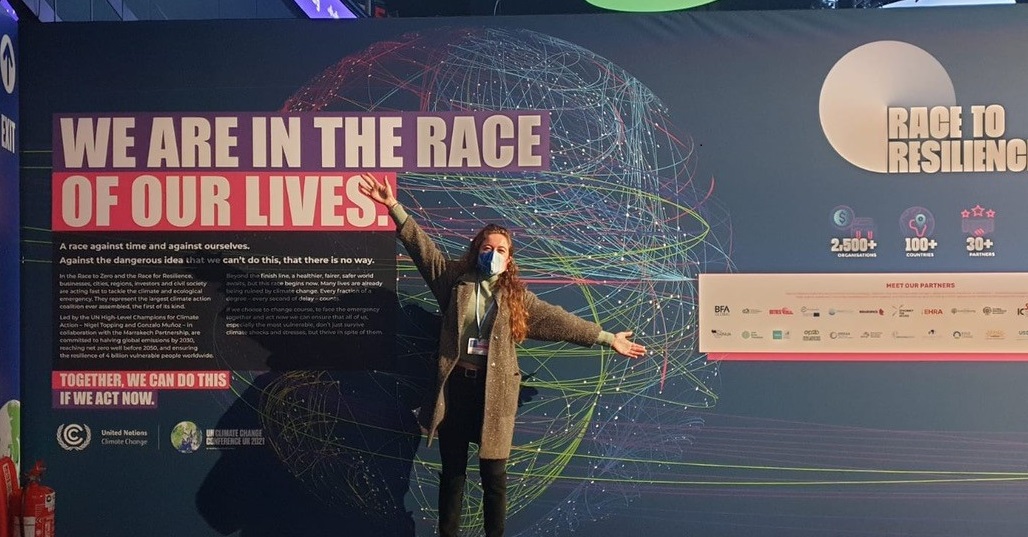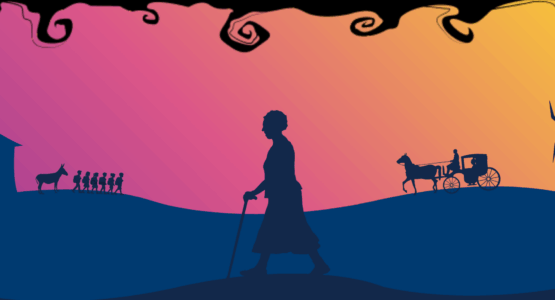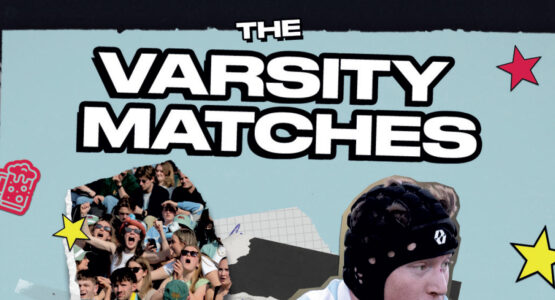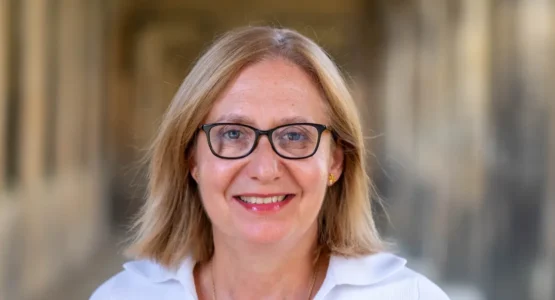Fiona Macklin (2012) studied Modern and Medieval Languages at St John’s and later pursued a master’s degree in International Development at the University of Melbourne. She is now the Race to Zero Campaign Manager for UN High Level Climate Champions. Fiona attended and spoke at COP27 in Sharm El Sheikh, Egypt earlier this month.
Please tell us a little bit about your time at St John’s.
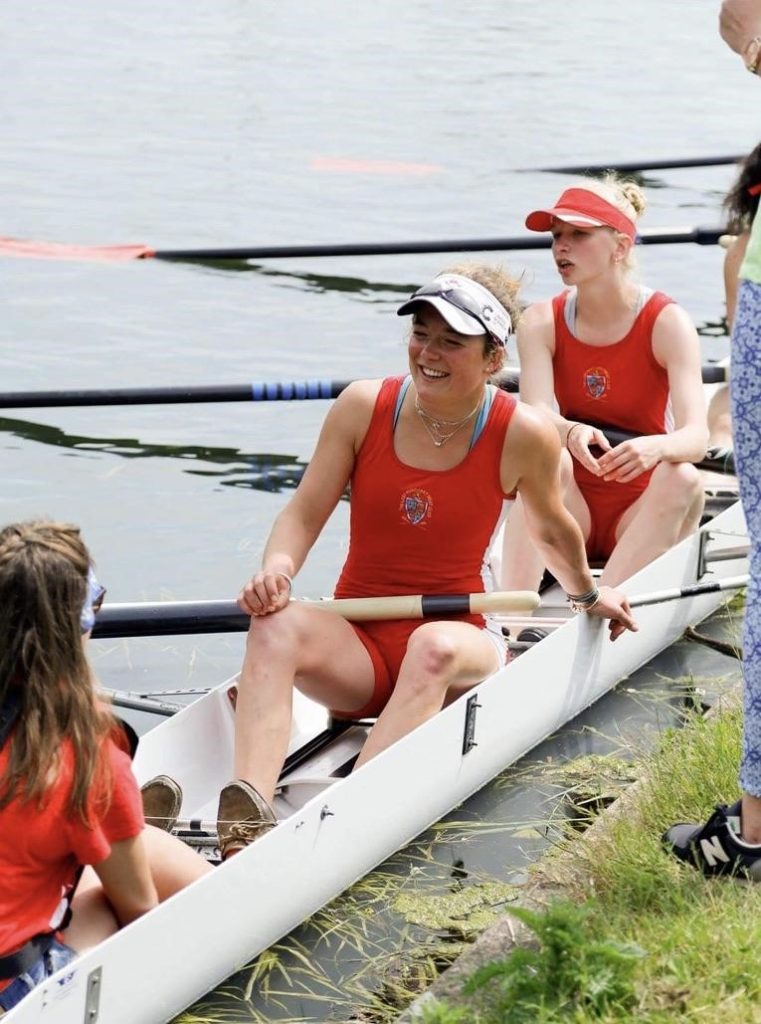
I grew up in an international environment so the prospect of working in a diverse, global and multicultural arena was always appealing. To do this, I wanted to study languages at university and was particularly attracted to the course at Cambridge for its breadth. When I started at St John’s, I remember thinking ‘I want to do everything’. I tried my hand at different sports, dipped my toe in acting at the ADC, and spent long evenings with friends discussing niche German literature (because my British pop culture knowledge was too abysmal, having grown up in France. Or at least, that was the excuse I used). I really relished the mix of activities, though while I loved being a jack of all trades, I quickly realised that I wanted to be a master of one: rowing. I never thought I would try rowing, but a free barbecue during Freshers’ week was enough to tempt me down to the boat house. It didn’t take long for me to become obsessed with this sport that was so fundamentally team-oriented and in which there was constant space for improvement.
Rowing – first for the College, then for the University in the 2014 Lightweight Boat Race and subsequently the 2016 Boat Race on the Thames – taught me some of the most pertinent lessons that stay with me today: never give up; you can always do better; a crew can be faster than the sum of its parts if it works together; and you always want to be the slowest in the boat, putting upward pressure on the team to constantly strive for more.
These sorts of mantras were ones that I wanted to take with me into working life.
How did you get into your current work?
After a brief stint in the City, I returned to Cambridge to work for the University Alumni and Development Office, during which time I found myself in a role which straddled campaigning and diplomacy, managing University – College relations. In parallel, reading about the exponentially accelerating climate crisis, it became clear to me that I could take these skills and apply them to a global challenge like climate change which required unprecedented levels of teamwork in a race against time.
It struck me that some further studying might be needed. I took up a master’s degree in International Development with a focus on Environmental Policy at the University of Melbourne. During the first few months of living there, some of the worst bushfires in Australian history ravaged the country. I was volunteering for the Red Cross as Team Leader in the Emergency Services Department. It was viscerally frightening – even in the city of Melbourne the smoke was so acrid you couldn’t go outside without a mask for a week. Such a tangible experience of the impacts of a warming planet in a wealthy, developed city reinforced to me just how quickly change was happening, how widely the impacts of this change was being felt, and how devastating its consequences were to people anywhere and to nature everywhere.
On a trip home from Melbourne in March 2020 to spend time with family, my partner and I got stuck in the UK as we saw Australia’s borders close almost overnight in an attempt to halt the spread of the pandemic. I started an internship with the UN Framework Convention on Climate Change as part of their Stakeholder Engagement Team, at the end of which – recognising the borders were unlikely to open again anytime soon – I joined a team led by the UN Climate Change High-level Champions to manage a campaign called the Race to Zero. The High-Level Champions’ mandate is to drive action across the real economy to support national governments in meeting the Paris Agreement, and so they launched Race to Zero in June 2020 to help them deliver on that mandate.
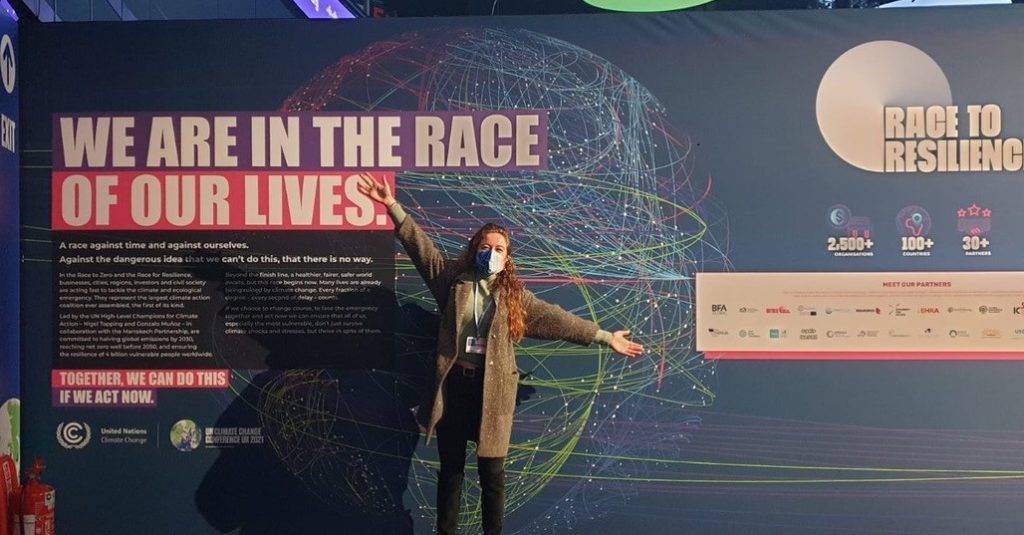
Race to Zero is the world’s largest alliance rallying non-state actors – now including over 11,000 companies, cities, regions, financial, educational and healthcare institutions from 116 countries – to take rigorous and immediate action to halve global emissions by 2030 and deliver a healthier, fairer zero-carbon world. All members are committed to the same overarching goal: reducing emissions across all scopes swiftly and fairly in line with the Paris Agreement, with transparent action plans and robust near-term targets. Through this mass mobilisation of robust commitments and growing momentum of voluntary climate action, the campaign is demonstrating to national governments that there is appetite amongst the global economy for change, and giving confidence to policy-makers that they can and must ratchet their own ambitions and actions.
Have you found your languages degree to be helpful in your work? And what have been your highlights of the role so far?
While I’ve not really used my languages as much as I would like, I have certainly benefited from the broader language-learning skills which the course taught me. Importantly, being open-minded and curious to understand different cultures and perspectives is key to being humble and learning from others, which I find so critical in this space. Learning languages also requires patience and an understanding of the bigger picture, which are skills that help me deal with some of the challenges of this work.
One personal highlight was meeting President Obama at COP26 when he asked to learn more about Race to Zero and its sibling campaign Race to Resilience. His warmth and generosity of thinking was utterly awe-inspiring, and his tips for successful campaigning were poignant and motivating.
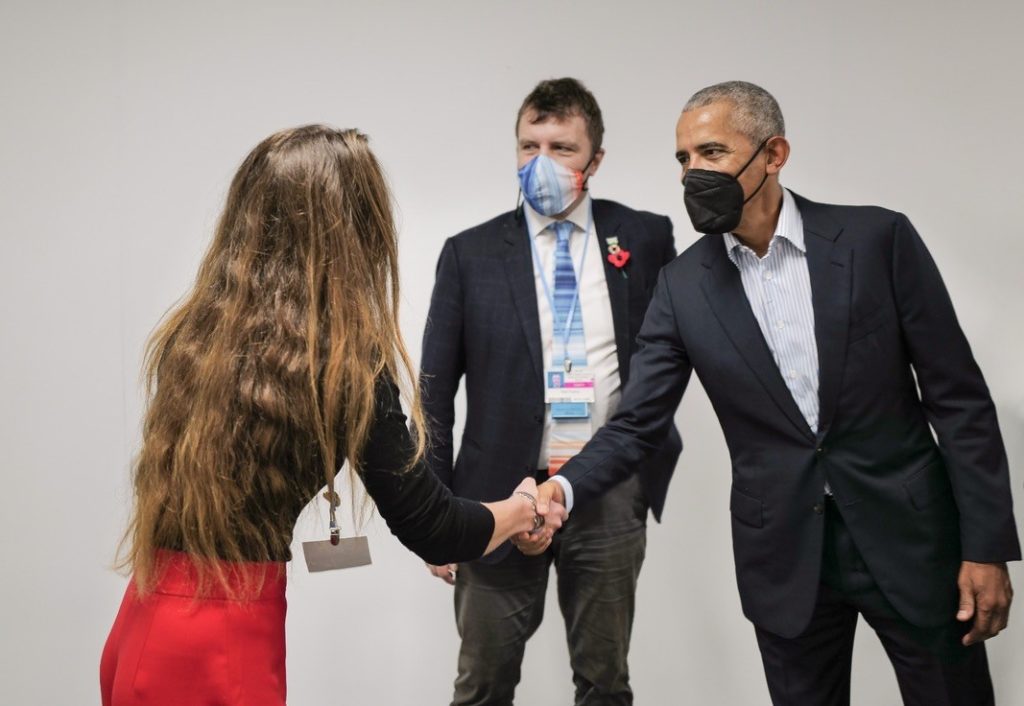
More generally, it’s a privilege to experience daily highlights in this job: recognising the innovative approaches which companies, cities, investors and others are pioneering; seeing attention to this cause, and awareness of this campaign, rapidly gain traction; and being part of a global team in which each colleague brings a phenomenal wealth of expertise, experience and dynamism.
What do you hope will come out of COP27?
Well, the latest UN Emissions Gap Report clearly shows humanity on track for catastrophe if we collectively continue with business as usual. However, the IEA World Energy Outlook also highlights the vast potential for a historic turning point towards a cleaner and more secure future, if we continue accelerating and scaling the systems transformations underway across all sectors of the economy. Race to Zero will continue to elevate these examples of leadership in action and will work with its partners to close the emissions gap at the speed and scale required. We’ll need more finance, more transparency and more capacity-building to achieve this.
In particular, I’d like to see from COP27 a clear pivot from commitments to implementation, and a dramatically accelerated conversion from the groundswell of ambitious, voluntary climate action into ground rules for the global economy.
What’s next on the agenda for your UN Climate Change team? And for you personally?
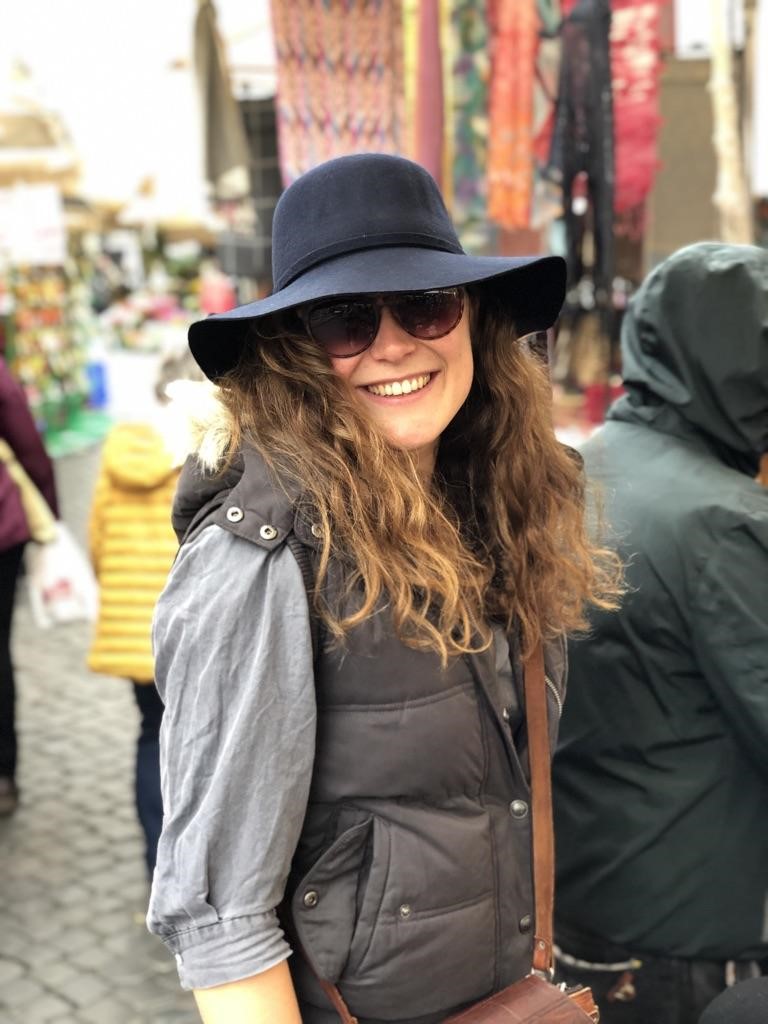
In many ways, the Race to Zero has only just left the starting blocks. There’s still a long way to go and I am certainly keen to continue contributing to this effort. The exciting thing about working in the Climate Champions’ Team is that it always feels we are at the forefront of change, thanks to working with the partners and stakeholders who are pioneering this work and being able to champion what they are doing.
There’s always more to be done in this space, but it’s also struck me this year that – precisely because of the urgency of the task and the passion which people working in this space bring to their work – it’s easy to end up running on empty. So, after COP27, I’ll be taking some time out in the wilderness hiking, to appreciate the nature that we spend our time fighting for. I will use that time to think about what comes next, both for Race to Zero and for me. I’m also getting married next year, so I’m getting excited about that!
We only have one life: we have to spend it wisely, spontaneously, not take it too seriously, but also recognise the luck and beauty in being able to use it transformationally.
You can learn more about the Race to Zero Campaign on the UN website.

